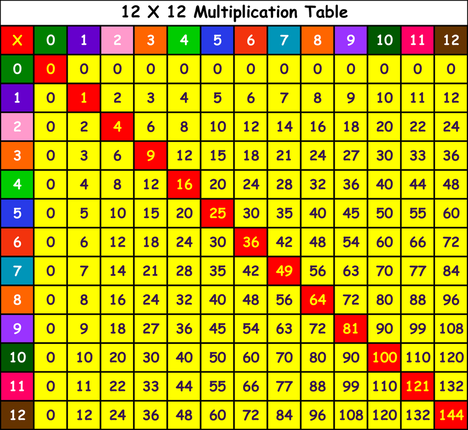You have heard the term LCM in Math from the time you are in elementary school.
Math teachers will often tell you to find the LCM before you can do other mathematical things.
But what is LCM? And when do you use it?
Think back to Grade 5 when your teacher asked you to “FIND THE LCM OF 4 AND 6. You may have sat thee for a while scratching your head trying to remember EXACTLY what that meant.
Math teachers will often tell you to find the LCM before you can do other mathematical things.
But what is LCM? And when do you use it?
Think back to Grade 5 when your teacher asked you to “FIND THE LCM OF 4 AND 6. You may have sat thee for a while scratching your head trying to remember EXACTLY what that meant.
LEAST
You have heard this word long before Grade 5.
What number is LEAST from the numbers 3, 5 and 1?
Well, it is the number that is the smallest.
So whenever you hear LEAST, you think the number that is the smallest
in a set of given numbers.
COMMON
You have also heard this word long before Grade 5.
And if you watched Sesame Street growing up, you may have come across this as well.
Which letters of the alphabet in these two words have a letter in COMMON: ANT & CAT?
It is the letter ‘A’ and the letter ‘T’.
The same way you can find common letters in two words,
you can find common numbers in multiples.
MULTIPLE
This word almost sounds like the word MULTIPLY.
That is because Multiples from our times tables.
The Multiples of 4 are 4, 8, 12, 16, 20 …
The Multiples of 6 are 6, 12, 18, 24, 30, …
When you look at the timetable grid below, all numbers are MULTIPLES:
You have heard this word long before Grade 5.
What number is LEAST from the numbers 3, 5 and 1?
Well, it is the number that is the smallest.
So whenever you hear LEAST, you think the number that is the smallest
in a set of given numbers.
COMMON
You have also heard this word long before Grade 5.
And if you watched Sesame Street growing up, you may have come across this as well.
Which letters of the alphabet in these two words have a letter in COMMON: ANT & CAT?
It is the letter ‘A’ and the letter ‘T’.
The same way you can find common letters in two words,
you can find common numbers in multiples.
MULTIPLE
This word almost sounds like the word MULTIPLY.
That is because Multiples from our times tables.
The Multiples of 4 are 4, 8, 12, 16, 20 …
The Multiples of 6 are 6, 12, 18, 24, 30, …
When you look at the timetable grid below, all numbers are MULTIPLES:
LEAST COMMON MULTIPLE
So now, the LEAST COMMON MULTIPLE, or LCM, is the number that is
1) The Smallest (LEAST),
2) The Same (Common) and
when you list out the multiples of two or more numbers.
1) The Smallest (LEAST),
2) The Same (Common) and
when you list out the multiples of two or more numbers.
Let's find the LCM of 4 and 6.
The easiest way to find the LCM of two numbers is to:
STEP 1) List the multiples of each number.
Look in the multiplication table above to find them. Write about 5 or 6 of them out.
4: 4, 8, 12, 16, 20, 24, 28, 32,...
6: 6, 12, 18, 24, 30, 36, 42, ..
STEP 2) Find the multiples in each list that are COMMON (the same)
4: 4, 8, 12, 16, 20, 24, 28, 32,...
6: 6, 12, 18, 24, 30, 36, 42, ..
Common multiples: 12, 24
STEP 3) Write down the SMALLEST (Least) Common Multiple
LCM: 12 (answer)
The easiest way to find the LCM of two numbers is to:
STEP 1) List the multiples of each number.
Look in the multiplication table above to find them. Write about 5 or 6 of them out.
4: 4, 8, 12, 16, 20, 24, 28, 32,...
6: 6, 12, 18, 24, 30, 36, 42, ..
STEP 2) Find the multiples in each list that are COMMON (the same)
4: 4, 8, 12, 16, 20, 24, 28, 32,...
6: 6, 12, 18, 24, 30, 36, 42, ..
Common multiples: 12, 24
STEP 3) Write down the SMALLEST (Least) Common Multiple
LCM: 12 (answer)
Now you have the steps to find the LCM of a set of numbers. You will need this skill when you are adding and subtracting fractions in the future
Make sure you practice this skill in order to improve your knowledge. Practice is key!
Try the following for practice:
FIND THE LCM of
a) 5 and 6 b) 10 and 6 c) 6 and 8 d) 8 and 12
Make sure you practice this skill in order to improve your knowledge. Practice is key!
Try the following for practice:
FIND THE LCM of
a) 5 and 6 b) 10 and 6 c) 6 and 8 d) 8 and 12




 RSS Feed
RSS Feed